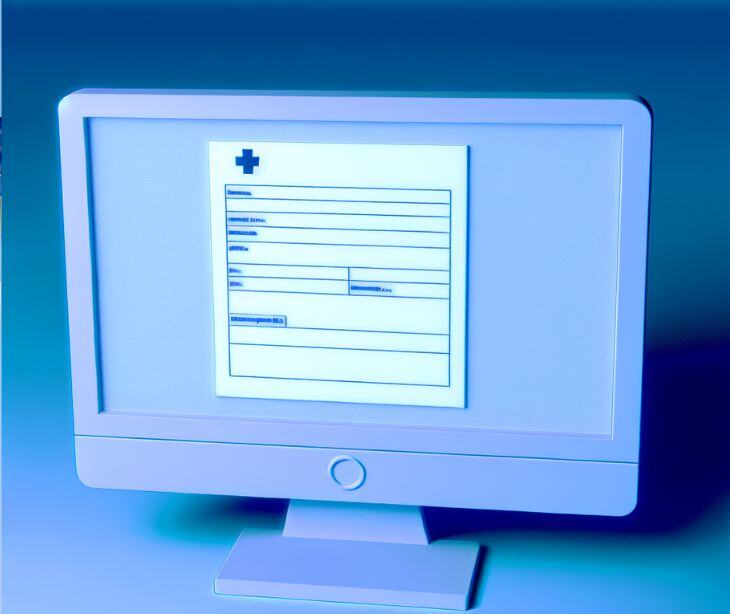
The Health Insurance Portability and Accountability Act (HIPAA) is legislation in the healthcare industry that ensures the privacy and security of patients' sensitive health information. As healthcare providers and organizations strive to comply with HIPAA regulations, many questions arise about specific practices, such as using forms. This article addresses some of the most frequently asked questions about HIPAA compliant forms to help you gain a better understanding of their requirements and implications.
What are HIPAA compliant forms?
HIPAA compliant forms are digital or paper forms used to collect, store, and transmit protected health information (PHI) in a manner that complies with the Health Insurance Portability and Accountability Act (HIPAA) regulations. These forms must include safeguards to ensure the confidentiality, integrity, and availability of PHI.
Read more: What are HIPAA forms?
What types of information should be included in a HIPAA compliant form?
HIPAA compliant forms can include a wide range of PHI, such as:
- Patient identification: Name, address, date of birth, Social Security number.
- Medical history: Past medical conditions, treatments, surgeries.
- Insurance information: Policy numbers, provider details.
- Current health data: Symptoms, diagnoses, medications.
- Consent and authorization: Patient consent for treatment, information release.
Read more: The different types of HIPAA forms
What can HIPAA forms be used for?
HIPAA compliant form use cases
Here's how your practice can use HIPAA compliant forms:
- Quick patient intake: Patients can complete their details online before appointments.
- Direct patient feedback: Patients can provide feedback so providers can improve services.
- Enhanced telehealth: Pre-session forms ensure better preparedness and efficiency.
- Streamlined referrals: Online forms make the referral process quicker and more secure.
- Emergency contact updates: Quick, secure collection of emergency contacts.
- Health history at a glance: Patients can complete detailed health history forms online.
- Informed consent: Simplify collecting and tracking authorization for treatments, procedures, and marketing campaigns.
- Insurance info made easy: Efficiently collect and verify insurance details, speeding up billing processes.
- Wellness program sign-ups: Facilitate enrollment in health programs.
- Post-treatment check-ins: Forms are an easy way to follow up with patients.
How does encryption apply to HIPAA compliant forms?
Encryption applies to both the storage and transmission of HIPAA compliant forms. When forms are filled out and stored electronically, encryption ensures that PHI is protected from unauthorized access. When forms are transmitted over the internet, encryption ensures that data is secure during transit, preventing interception by unauthorized parties.
What are the features of a HIPAA compliant form platform?
- Encryption: Encryption for data transmission and storage.
- Access controls: Secure login with unique user IDs and multi-factor authentication.
- Audit trails: Logging of all access and changes to the forms.
- Secure data storage: PHI is stored securely with proper encryption.
- Compliance reporting: Tools to generate reports demonstrating compliance with HIPAA.
- User permissions: Granular control over who can view, edit, or submit forms.
Related: The Top 7 HIPAA compliant online forms
How should patient consent be handled for HIPAA compliant forms?
Patient consent should be handled by:
Informing patients: Clearly explain the purpose of the form and how their data will be used.
Obtaining written consent: Ensure patients provide written consent for their data to be collected, stored, and used.
Storing consent records: Maintain records of patient consent securely.
Providing alternatives: Offer alternative methods for completing forms if patients prefer not to use electronic forms.
What steps should be taken if a HIPAA compliant form is accessed by an unauthorized individual?
- Immediate response: Notify the organization’s HIPAA compliance officer.
- Containment: Restrict further access to the form and secure the data.
- Investigation: Conduct an investigation to determine the cause and scope of the breach.
- Notification: Notify affected patients and, if necessary, the Department of Health and Human Services (HHS) in accordance with the HIPAA Breach Notification Rule.
- Corrective actions: Implement measures to prevent future breaches, such as additional training or changes to access controls.
Related: Navigating HIPAA’s Breach Notification Rule
What are the benefits of using digital forms for HIPAA compliance compared to paper forms?
- Improved security: Digital forms can be encrypted and access-controlled.
- Efficiency: Easier to collect, store, and retrieve information.
- Auditability: Digital forms provide clear audit trails for compliance purposes.
- Accessibility: Can be accessed and filled out remotely by patients and healthcare providers.
- Cost savings: Reduces costs associated with printing, storing, and managing paper forms.
What training should be provided to staff regarding HIPAA compliant forms?
Training should include:
- HIPAA basics: Overview of HIPAA regulations and protecting PHI.
- Form handling: Procedures for collecting, storing, and transmitting forms securely.
- Access controls: How to use secure login methods and manage permissions.
- Incident response: Steps to take if a breach or unauthorized access occurs.
- Patient interaction: Guidelines for explaining the purpose of forms and obtaining consent.
What should be included in a HIPAA compliant form policy?
A HIPAA compliant form policy should include:
- Purpose and scope: Define the purpose of the policy and its applicability.
- Roles and responsibilities: Outline the responsibilities of staff and administrators.
- Form security: Describe security measures such as encryption, access controls, and audit logging.
- Patient consent: Detail the process for obtaining and documenting patient consent.
- Incident response: Provide procedures for responding to breaches or unauthorized access.
- Training requirements: Outline training requirements for staff.
- Policy review: Procedures for regular review and updating of the policy.
Can third-party form providers be used, and what considerations must be taken?
Yes, third-party form providers can be used if they comply with HIPAA regulations. Considerations include:
- BAA: Ensure a business associate agreement (BAA) is in place with the provider.
- Security measures: Verify that the provider offers encryption, access controls, and secure data storage.
- Compliance: Assess the provider’s compliance with HIPAA requirements through audits and reviews.
- Data ownership: Ensure the organization retains ownership and control over the PHI collected.
- Incident response: Understand the provider’s incident response procedures for breaches involving their platform.
Read more: What is a business associate agreement?
How can audit logs enhance HIPAA compliance for digital forms?
Audit logs enhance compliance by:
- Tracking access: Monitoring who accessed or modified forms containing PHI.
- Ensuring accountability: Holding users accountable for their actions.
- Detecting unauthorized access: Identifying and responding to unauthorized access or changes.
- Supporting audits: Providing evidence of compliance during internal or external audits.
- Improving security: Identifying patterns or anomalies that may indicate security vulnerabilities.
What are the challenges in implementing HIPAA compliant digital forms, and how can they be addressed?
Challenges include:
- User adoption: Ensuring staff and patients adopt the new digital forms. Address this by providing training and demonstrating the benefits of digital forms.
- Technical issues: Managing technical issues such as integration with existing systems. Ensure IT support and choose platforms compatible with current systems.
- Data security: Ensuring the security of PHI collected through digital forms. Implement strong encryption, access controls, and regular security audits.
- Compliance monitoring: Continuously monitoring compliance with HIPAA regulations. Use automated tools for compliance monitoring and conduct regular reviews.
How can healthcare organizations ensure the availability of HIPAA compliant forms?
Organizations can ensure availability by:
- Redundant systems: Implementing redundant systems to prevent downtime.
- Regular backups: Performing regular backups of digital forms and associated data.
- Disaster recovery plans: Developing and testing disaster recovery plans to quickly restore access in case of system failure.
- Support: Providing 24/7 technical support to address issues promptly.
- Monitoring: Continuously monitoring systems to detect and address potential issues before they impact availability.
How can Paubox assist in providing HIPAA compliant forms?
Paubox assists in providing HIPAA compliant forms by offering a secure and user-friendly online form solution tailored for healthcare organizations. With Paubox Forms, healthcare providers can easily create custom forms using an intuitive drag-and-drop interface, ensuring seamless design and customization. These forms are built to be HIPAA compliant from the ground up, incorporating strong security measures such as encryption and access controls to protect patient data. Patient information collected through these forms is stored securely in an encrypted format, ensuring confidentiality. Additionally, Paubox Forms integrates smoothly with popular electronic health record (EHR) systems, facilitating the seamless transfer of patient data. This solution streamlines various administrative tasks, from patient intake and emergency contact updates to informed consent and post-treatment check-ins, enhancing efficiency while maintaining strict compliance with HIPAA regulations.
In the news
The settlement between the HHS' Office for Civil Rights (OCR) and New Vision Dental, a Californian dental practice, shows the need for HIPAA documentation and forms to protect patient privacy. Following a complaint about disclosures on Yelp, OCR found Dr. Brandon Au, the practice owner, had shared patients' protected health information online.
OCR’s investigators confirmed that Dr. Au had impermissibly disclosed the protected health information of patients on multiple occasions on Yelp, that the practice did not have the required content in its Notice of Privacy Practices, and that it had not implemented appropriate policies and procedures concerning protected health information, including the release of protected health information on social media platforms and in public places.
Subscribe to Paubox Weekly
Every Friday we'll bring you the most important news from Paubox. Our aim is to make you smarter, faster.



